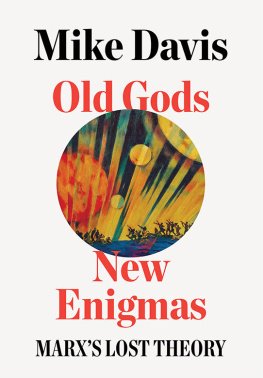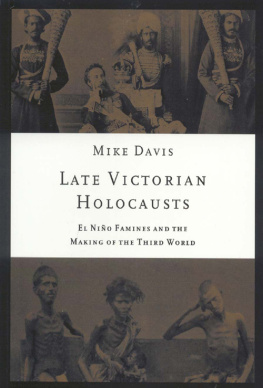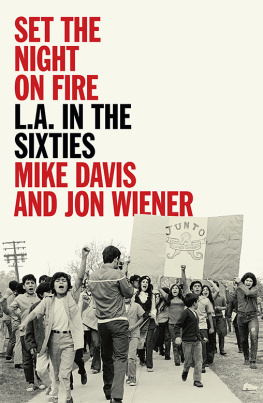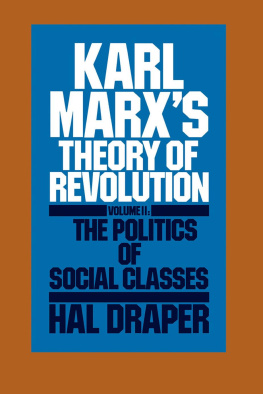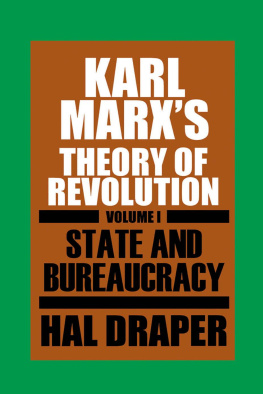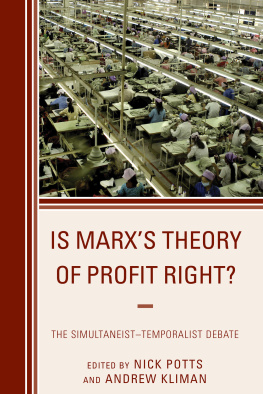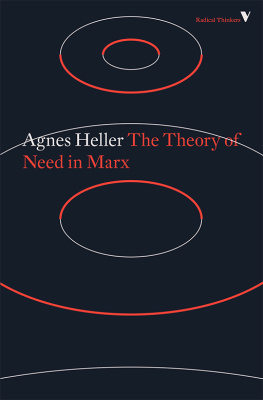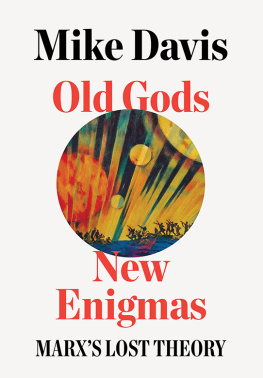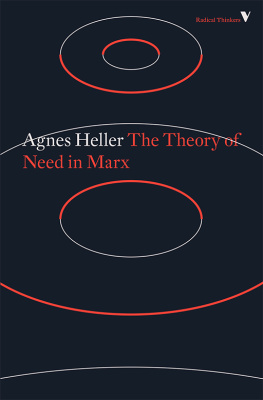Mike Davis - Old Gods, New Enigmas: Marx’s Lost Theory
Here you can read online Mike Davis - Old Gods, New Enigmas: Marx’s Lost Theory full text of the book (entire story) in english for free. Download pdf and epub, get meaning, cover and reviews about this ebook. year: 2018, publisher: Verso, genre: Politics. Description of the work, (preface) as well as reviews are available. Best literature library LitArk.com created for fans of good reading and offers a wide selection of genres:
Romance novel
Science fiction
Adventure
Detective
Science
History
Home and family
Prose
Art
Politics
Computer
Non-fiction
Religion
Business
Children
Humor
Choose a favorite category and find really read worthwhile books. Enjoy immersion in the world of imagination, feel the emotions of the characters or learn something new for yourself, make an fascinating discovery.
- Book:Old Gods, New Enigmas: Marx’s Lost Theory
- Author:
- Publisher:Verso
- Genre:
- Year:2018
- Rating:4 / 5
- Favourites:Add to favourites
- Your mark:
- 80
- 1
- 2
- 3
- 4
- 5
Old Gods, New Enigmas: Marx’s Lost Theory: summary, description and annotation
We offer to read an annotation, description, summary or preface (depends on what the author of the book "Old Gods, New Enigmas: Marx’s Lost Theory" wrote himself). If you haven't found the necessary information about the book — write in the comments, we will try to find it.
Old Gods, New Enigmas: Marx’s Lost Theory — read online for free the complete book (whole text) full work
Below is the text of the book, divided by pages. System saving the place of the last page read, allows you to conveniently read the book "Old Gods, New Enigmas: Marx’s Lost Theory" online for free, without having to search again every time where you left off. Put a bookmark, and you can go to the page where you finished reading at any time.
Font size:
Interval:
Bookmark:
OLD GODS,
NEW ENIGMAS
NEW ENIGMAS
Marxs Lost Theory
MIKE DAVIS

First published by Verso 2018
Mike Davis 2018
Earlier versions of chapters 2, 3, and 4 appeared in New Left Review, published in
the following issues: II/90, MayJune 2015; II/97, JanuaryFebruary 2016; II/61,
JanuaryFebruary 2010
All rights reserved
The moral rights of the author have been asserted
1 3 5 7 9 10 8 6 4 2
Verso
UK: 6 Meard Street, London W1F 0EG
US: 20 Jay Street, Suite 1010, Brooklyn, NY 11201
versobooks.com
Verso is the imprint of New Left Books
ISBN-13: 978-1-78873-216-1
ISBN-13: 978-1-78873-219-2 (US EBK)
ISBN-13: 978-1-78873-218-5 (UK EBK)
British Library Cataloguing in Publication Data
A catalogue record for this book is available from the British Library
Library of Congress Cataloging-in-Publication Data
A catalog record for this book is available from the Library of Congress
Typeset in Fournier by MJ & N Gavan, Truro, Cornwall, UK
Printed in the US by Maple Press
It is when you have done your work honestly, when you have contributed your share to the common fund, that you begin to live. Then, as Whitman said, you can take out your soul.
Eugene Debs
Lee Gregovichs injunction has been rattling around my brain for more than half a century. A good friend of my dad, he was, I suppose, my red godfather. His family, like many others from the Dalmatian coast, had emigrated to the copper mines of the American Southwest before the First World War. There they were embroiled in epic labor conflicts. Lee told rousing stories about his days as an IWW paper boy, selling the Industrial Worker in saloons and cathouses, and then watching as his father and 1,300 other striking miners, mostly Mexican and south Slav, were arrested by Phelps-Dodge vigilantes, put in manure-floored cattle cars, and deported to a bleak stretch of desert in New Mexico. In the 1930s he became active in the Cooks Union in San Diego and joined the Communist Party. The House Committee on Un-American Activities brought its inquisition to San Diego in 1954 and Lee was subpoenaed and then blacklisted by employers. He finally found a job cooking at the Chicken Shack, an old-style roadhouse near the picturesque mountain town of Julian.
When my father had a catastrophic heart attack in my junior year, I quit high school for a semester to drive a delivery truck for my uncles wholesale meat company. The Chicken Shack was our most distant customer and once every week or so, after delivering to country restaurants with names like the Lariat and the Lazy J, Id scuttle up the long road to Julian. On such days Lee and I had a ritual. After the order had been put in the walk-in, hed pour me a small glass of red wine, wed talk briefly about my dads health or the Civil Rights movement (he was proud that I had become active in San Diego CORE), then, as I got up to leave, hed slap me on the back and say, Read Marx! (Ive always liked telling this story and was not surprised when a garbled version of it, insinuating that Lee was a mysterious Soviet agent, appeared in my FBI file.)
Lee himself, like millions of other rank-and-file socialists and communists, had read little or no Marx. Wage, Labor and Capital, perhaps, and certainly some Lenin, whose The Teachings of Karl Marx was a popular substitute for reading the old man himself. Most ordinary readers, however, cowered in face of that Everest of theory, Capital. The few who attempted it usually fell into one of the early crevasses of the first chapter and never returned for a second try. This only added, of course, to the mystique of Marxs genius and the prestige of party intellectuals who claimed to have reached the summit. A study of workers libraries in Wilhelmine Germany found that serious proletarian readers were especially interested in Darwinism and materialist interpretations of natural history, not the critique of political economy. Kautskys Economic Doctrines of Karl Marx was more borrowed than actually read.
Little had changed when I joined the Southern California Communist Party in 1968 in solidarity with their stand against the Russian suppression of the Prague Spring. I was flabbergasted that new members political education consisted solely of reading Julius Fuciks Notes from the Gallowsthe stirring last testament of a young Czech Communist executed in 1943, but hardly an introduction to Marxism. My own knowledge was limited to the Paris Notebooks and bits of The German Ideology, recommended in a popular book that I had read on Marx and alienation. The only member of the L.A. Party, young or old, who seemed to have a serious understanding of Marx, and indeed was reading the Werke in German, was newly recruited Angela Davis, and she was fighting too many important battles to have time to tutor the rest of us.
What made Marx a stranger to Marxist movements, however, was not simply the difficulty of certain key works and passages, but a series of other obstacles. Where to begin, for example? If you began at the beginning with dialectics, you had to endure Hegel scowling at you while you became increasingly befuddledat least, that was my experience while trying to digest Marcuses Reason and Revolution during lunch and supper breaks at work. I was delighted years later to discover an epigram in which the young Marx registered his own frustration with the Master and his interpreters:
On Hegel
Words I teach all mixed up into a devilish muddle,
Anyone may think just what he chooses to think;
Each may for himself suck wisdoms nourishing nectar;
Now you know all, since Ive said plenty of nothing to you!
If you gave G. W. F. a detour, you might discover, with the aid of interpretations by the Marxist Humanists then in vogue, the inspiring Marx of the Paris and Brussels years. (The Holy Family [1845], however, never made my reading list since the only person that Ive ever known who read it was on acid at the time.) But then, once you thought that you had learned to walk, Althusser came along and the Young Marx suddenly became the Wrong Marx.
With few exceptions, however, the Marx of the Rue Elm and other seminars was disembodied from the man and fighter. The works most infused with the passion of the barricades, the extraordinary political analyses of the 184850 cycle, were usually ignored by the philosophers. In my unsuccessful autodidact years, Marx seemed either emulsified in incompatible doctrines imposed by party ideologists (Diamat, for instance) or hidden away in mysterious untranslated manuscripts. In addition, it was almost impossible to gain an overview of the oeuvre since the publication of the English version of the collected works was still years in the future. Martin Nicolauss translation of the legendary Grundrisse in 1973a milestone of the New Left Review/Penguin Books collaborationconsiderably leveled the playing field for non-German readers, but it also added 900 pages of required study to the several thousand pages of the four volumes of Capital.
That same year, after losing a coveted niche in the trucking industry, I started UCLA as an adult freshman, attracted by rumors of a high-powered seminar on Capital led by Bob Brenner in the History Department. Brenner and his gang (Richard Smith, Jan Breidenbach, Maria Ramos, and others) were reading Capital in the context of debates within British Marxism on agrarian class struggles and the transition from feudalism to capitalism. Later the seminar moved on to crisis theory and twentieth-century economic history. It was an exhilarating experience and gave me the intellectual confidence to pursue my own agenda of eclectic interests in political economy, labor history, and urban ecology. Apart from Hal Drapers
Font size:
Interval:
Bookmark:
Similar books «Old Gods, New Enigmas: Marx’s Lost Theory»
Look at similar books to Old Gods, New Enigmas: Marx’s Lost Theory. We have selected literature similar in name and meaning in the hope of providing readers with more options to find new, interesting, not yet read works.
Discussion, reviews of the book Old Gods, New Enigmas: Marx’s Lost Theory and just readers' own opinions. Leave your comments, write what you think about the work, its meaning or the main characters. Specify what exactly you liked and what you didn't like, and why you think so.

